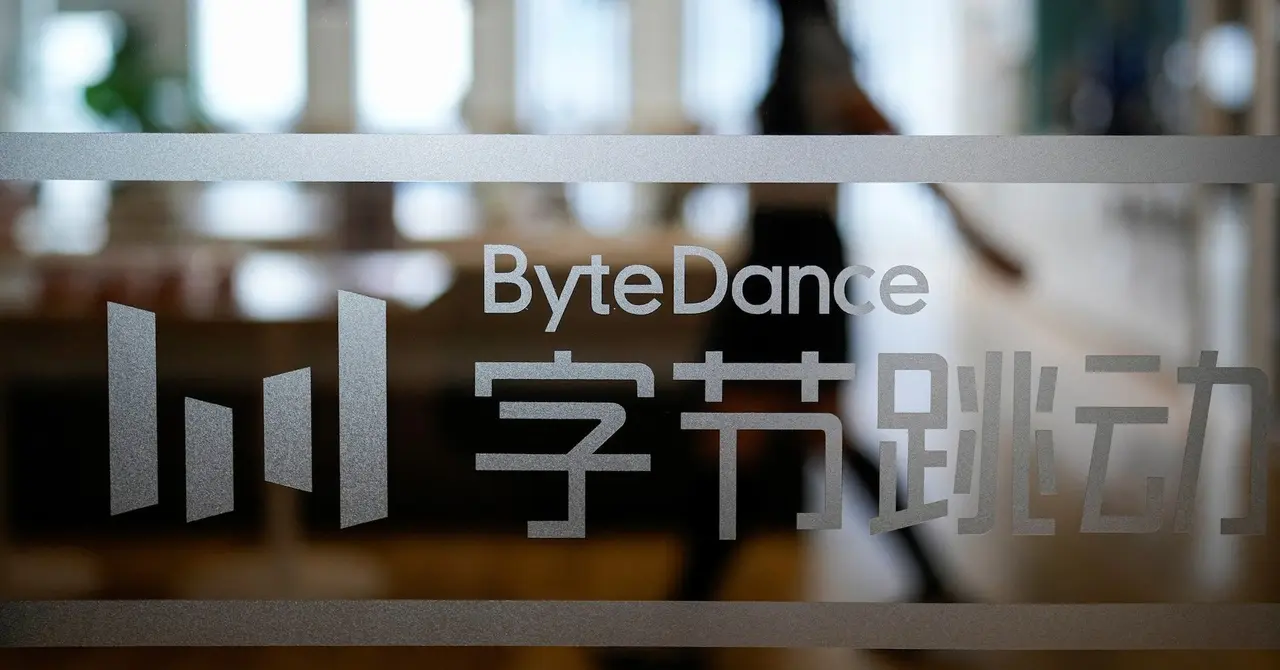Google Spearheads Global Signal Exchange to Combat Online Scams
2 Sources
2 Sources
[1]
Google and industry leaders launch the Global Signal Exchange to fight online scams
Google Phone's already-awesome spam shield could soon add anti-scam AI Key Takeaways Google is partnering with the Global Anti-Scam Alliance (GASA) and DNS Research Federation (DNS RF) to form the Global Signal Exchange (GSE). GSE is a platform for sharing scam and fraud-abuse data, ensuring partners have access and real-time visibility into cybercriminal networks and markers. GSE will begin operations on January 1, 2025, with its early pilot tests showing efficacy. Scams and online fraud are a reality of the world we live in. From the likes of phishing emails, investment scams, and crypto-related scams to social engineering, fake websites, and online job scams, there are a lot of ways bad actors can attempt to sour your time online -- making it all the more important for you as a user to remain vigilant. The onus also falls on tech giants whose services are being used to target victims. Google already offers safeguards to shield its users, and it is now looking to expand its safeguards with a new centralized platform. Related Spam, scams, and Search: How Google's using AI to keep you safe from malicious content So far, its efforts have been pretty successful The tech giant's Cross-Account Protection tool, which was launched earlier this year, "is actively protecting" over 3.2 billion users across websites and apps where they've used their Google account credentials to sign in, but the buck doesn't stop here. The tech giant is partnering with the Global Anti-Scam Alliance (GASA) and DNS Research Federation (DNS RF) to form the Global Signal Exchange (GSE), a platform for sharing scam and fraud-abuse data. Launching on January 1, 2025, GSE essentially aims to provide real-time visibility into the networks behind cybercriminal activity like scams and fraud "by merging as many data sources as possible and making the facilitators of cybercrime more visible," reads GSE's information page of GASA's website. As a founding member, Google brings experience of combating scams and fraud to the table, while GASA brings its huge network of shareholders that includes the likes of Amazon, Meta, Capital One, ScamAdviser, and more. The DNS RF, on the other hand, contributes via its established data platform with "over 40 million signals." Signals here essentially refers to indicators of suspicious or malicious online activity. Early pilot success Source: Google By joining forces, the three primarily aim to streamline the process of exchanging and sharing said 'signals,' making the process of identifying and disrupting fraudulent actors' schemes across the internet. According to Google, "the goal is to create a user-friendly, efficient solution that operates at an internet-scale, and is accessible to qualifying organizations, with GASA and the DNS Research Federation managing access." Access to signals can't be provided to everyone, considering that they need to be used responsibly and can't fall into the wrong hands, though those given access will be able to share and exchange signals in a secure and controlled environment. As part of GSE's early pilot tests, Google shared over 100,000 URLs of bad merchants, while gaining over 1 million signals from others part of the test. "We'll start by sharing Google Shopping URLs that we have actioned under our scams policies, and as we gain experience from the pilot, we will look to add data soon from other relevant Google product areas," wrote the tech giant. Related Google Phone's already-awesome spam shield could soon add anti-scam AI Gemini Nano's scam detection could be here soon
[2]
How Google's new partnership will uncover and disrupt online scams
Teaming up with two anti-scam groups, Google is setting up a global clearinghouse to share research on online fraud and other cybercrimes. Protecting people from online scams and frauds is a never-ending struggle for the good guys. One way to improve the odds is by sharing useful information. And now Google has kicked off a new initiative aiming to do just that. In a blog post published Wednesday, Google announced a new online clearinghouse called the Global Signal Exchange (GSE). Created in partnership with the Global Anti-Scam Alliance (GASA) and DNS Research Federation (DNS RF), this clearinghouse will serve as a way to identify and share research on fraudulent activities throughout the world. Also: Why you don't need to pay for antivirus software anymore The goal behind the GSE is to more quickly uncover and disrupt online scams and other activities that affect a host of sectors, services, and people. With Google the first founding member, the GSE will be accessible to other qualifying organizations, while access will be managed by GASA and the DNS Research Federation. To foster its growth and effectiveness, the GSE will tap into the relative strengths of each partner. GASA brings to the table a network of more than 100 members. The DNS Research Federation provides data on a variety of security metrics. And Google has years of experience fighting online scams and fraud. The company already works with Priority Flaggers, who notify it about incidents in which its products and services are used in ways that violate its policies. In an initial pilot of the GSE, Google was able to share more than 100,000 URLs of fraudulent retailers and receive 1 million scam reports. Next, the company will share Google Shopping URLs that were caught by its scam policies and eventually add data from other products and services. Running on Google Cloud Platform, the GSE will help participants share and receive reports of online fraud and take advantage of AI to find patterns. Also: You should protect your Windows PC data with strong encryption - here's how and why "We know from experience that fighting scams and the criminal organizations behind them requires strong collaboration among industry, businesses, civil society, and governments to combat bad actors and protect users," Google said in its blog post. "We're committed to doing our part to protect users, including through our continued work developing tools, publishing research, and sharing expertise and information with others to protect people online." In another sign of its battle against cyber fraud, Google revealed that its Cross Account Protection service is now protecting 3.2 billion users. Announced in May, the free Cross-Account Protection automatically kicks in when third-party sites and apps set up the Sign in with Google login feature. This lets the company share security alerts about malicious or suspicious activity with any app or service connected to your Google account. On the flip side, any site or app can use Google's suspicious event detection to keep your account safer from cybercriminals.
Share
Share
Copy Link
Google partners with anti-scam organizations to launch the Global Signal Exchange, a platform for sharing data on online fraud and scams, set to begin operations in 2025.

Google Leads Initiative to Combat Online Scams
In a significant move to enhance online security, Google has announced its partnership with the Global Anti-Scam Alliance (GASA) and DNS Research Federation (DNS RF) to create the Global Signal Exchange (GSE). This collaborative platform, set to launch on January 1, 2025, aims to revolutionize the fight against online scams and fraud by facilitating the sharing of crucial data among industry leaders
1
.The Global Signal Exchange: A New Frontier in Cybersecurity
The GSE is designed to provide real-time visibility into cybercriminal networks by merging multiple data sources. This initiative will allow partners to access and share "signals" - indicators of suspicious or malicious online activity. Google, as a founding member, brings its extensive experience in combating scams and fraud, while GASA contributes its vast network of stakeholders, including tech giants like Amazon and Meta
1
.Early Success and Future Prospects
During pilot tests, the GSE has already shown promising results. Google shared over 100,000 URLs of fraudulent merchants and received more than 1 million signals from other participants. The company plans to expand its contributions by sharing data from Google Shopping and other relevant product areas
2
.Leveraging AI and Cloud Technology
The GSE will operate on Google Cloud Platform, enabling participants to share and receive fraud reports efficiently. Moreover, the platform will utilize AI to identify patterns in fraudulent activities, potentially accelerating the detection and disruption of scams
2
.Expanding Protective Measures
In addition to the GSE, Google has been actively enhancing its security measures. The company's Cross Account Protection service, launched earlier this year, now safeguards over 3.2 billion users across various websites and apps where Google account credentials are used for sign-in
1
.Related Stories
Collaborative Approach to Cybersecurity
Google emphasizes that combating scams and criminal organizations requires strong collaboration among industry players, businesses, civil society, and governments. The GSE represents a significant step towards this collaborative approach, aiming to create a more secure online environment for users worldwide
2
.Challenges and Considerations
While the GSE promises to be a powerful tool in the fight against online fraud, it also raises questions about data privacy and responsible use of shared information. Access to the platform will be carefully managed to ensure that sensitive data doesn't fall into the wrong hands, highlighting the delicate balance between security and privacy in the digital age
1
.References
Summarized by
Navi
[1]
Related Stories
Google Unveils Top Online Scams: AI-Enhanced Threats and Cloaking Techniques on the Rise
15 Nov 2024•Technology

Google Rolls Out AI-Powered Scam Detection for Android Messages and Calls
05 Mar 2025•Technology

Google Enhances Android Security with AI-Powered Scam Detection and Anti-Theft Features
14 May 2025•Technology

Recent Highlights
1
Hollywood studios demand ByteDance halt Seedance 2.0 after AI-generated Tom Cruise fight goes viral
Technology

2
Microsoft AI chief predicts automation of white collar tasks within 18 months, sparking job fears
Business and Economy

3
University of Michigan's Prima AI model reads brain MRI scans in seconds with 97.5% accuracy
Science and Research





